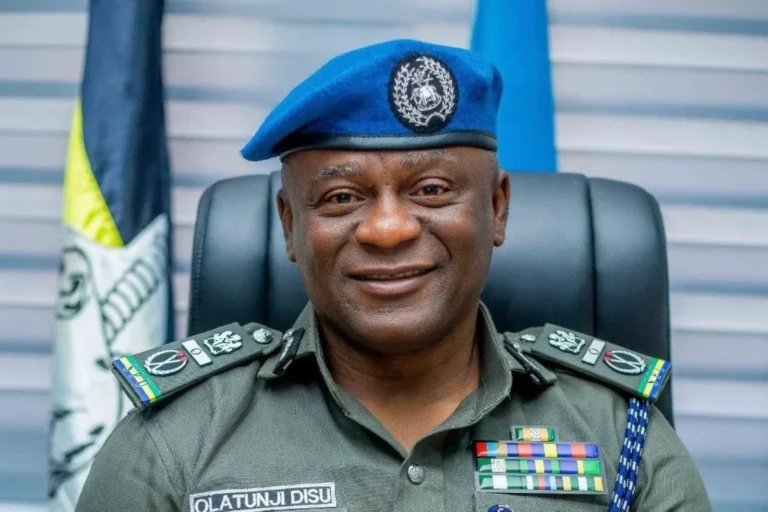Nigeria’s First Female Army Spokesperson Appointed

On April 16, 2025, the Nigerian Army announced the appointment of Lieutenant Colonel Onyinyechi Nwachukwu Anele as its first female spokesperson, assuming the role of Acting Director of Army Public Relations (DAPR). This strategic communication office serves as the public interface for the Army.
This appointment signifies a pivotal moment not only for the military but also for women throughout Nigeria, as it marks the first occasion in the history of the Nigerian Army in which a woman has been entrusted with such a prominent and influential position.
Furthermore, this achievement extends beyond mere symbolism, reflecting a dedicated commitment to enhancing gender inclusion within the Nigerian military in 2025. It aligns with broader national and global initiatives aimed at promoting equality within leadership and security institutions.
Lieutenant Colonel Onyinyechi Anele: A New Voice of the Military
Lieutenant Colonel Onyinyechi Anele brings with her a wealth of experience. She is known within army circles for her professionalism, strategic mind, and communication skills. Before this appointment, she served in various command and administrative capacities, including media liaison roles and operational communication units.
Her rise through the ranks was marked by dedication and distinction. In a military setting often dominated by men, Anele stood out not by calling attention to her gender, but by letting her work speak.
“She has always been sharp, tactful, and resilient,” said a fellow officer who trained with her. “We knew she was going places—but becoming Nigeria’s first female army spokesperson appointed still surprised us. It’s a proud moment.”
Gender Inclusion in Nigerian Military 2025: Real Change or Symbolism?
With the gender inclusion in Nigerian military 2025 agenda gaining traction, Anele’s promotion is being seen as a key indicator of progress. However, questions remain: Is this the start of a broader shift, or a one-time achievement?
According to data from the Ministry of Defence, women currently make up less than 8% of the Nigerian Army. Of that, only a fraction hold senior leadership roles. Advocacy groups like the Nigerian Women in Security Forum (NWSF) have long called for structural reforms to enable more female participation.
“Anele’s appointment is a clear message that the doors are opening. But we need follow-through,” said Halima Shehu, a gender advocate based in Abuja.
Indeed, gender inclusion in Nigerian military 2025 must go beyond symbolic appointments. It requires policies on recruitment, promotion, maternity support, and protection from discrimination or harassment.
A Personal Journey of Breaking Barriers
Born and raised in the southeastern region of Nigeria, Lieutenant Colonel Onyinyechi Anele joined the army as a young officer with a dream to serve her country and challenge stereotypes. She earned multiple academic qualifications, including a master’s degree in communication strategy, and completed military courses in both Nigeria and abroad.
Her colleagues describe her as disciplined, focused, and a quiet leader. Behind the uniform is a mother, mentor, and motivator.
“For me, this is a win for every young girl who has ever been told she couldn’t lead or speak for others,” Anele said in a brief statement. “It is an honor and a responsibility.”
Her journey underscores why Nigeria’s first female army spokesperson appointed is not just a title—it’s a story of persistence and progress.
Challenges Ahead in a Gendered Command Space
Despite the celebration, experts caution that Anele may face institutional resistance in her new role. The Nigerian military has been slow to adopt modern gender policies. Past female officers who rose through the ranks often spoke of being sidelined or underestimated.
Yet, having Nigeria’s first female army spokesperson appointed could shift the narrative from within. Anele is now positioned to influence how the military communicates with the public, especially on issues involving women, civilian protection, and community engagement.
“She’s the right voice at the right time,” said Major Musa Ibrahim, a military strategist. “With the rising demand for transparency in military operations, a communicator like Anele could rebuild public trust.”
Public Reaction: Applause, Hope, and Renewed Interest
Social media erupted in applause after news broke of Nigeria’s first female army spokesperson appointed. Hashtags like #OnyinyechiAnele, #WomenInUniform, and #MilitaryInclusion trended on X (formerly Twitter).
Young women in security, journalism, and communications saw the news as inspiration. “I’ve always wanted to join the Army’s media unit. Seeing her makes that dream feel real,” said Grace Olufemi, a Mass Communication student at the University of Lagos.
Public opinion polls showed overwhelming support for the decision, with many Nigerians calling for similar representation in other branches of the military and paramilitary agencies.
Regional Representation and National Unity
Another layer to Anele’s appointment is regional balance. Being from the South-East, her promotion speaks volumes in a country often divided along ethnic lines. Her rise may help reinforce national unity and equity.
“This is not just about gender. It’s also about inclusivity for all Nigerians, regardless of their region,” said political analyst Uche Maduka.
Nigeria’s first female army spokesperson appointed from the South-East signals that leadership roles are attainable for all qualified citizens—regardless of gender or origin.
Lieutenant Colonel Onyinyechi Anele, now Nigeria’s first female army spokesperson appointed, is blazing a trail that many others will walk. Her role is one of visibility, influence, and trust. Her voice will shape how the military engages with Nigerians—and how Nigerians see their military.
The movement for gender inclusion in Nigerian military 2025 has gained a visible face. But this moment must lead to real change—more opportunities, stronger policies, and a culture that celebrates diversity.
As Nigeria continues to evolve, Anele’s appointment reminds us that inclusion is not just an ideal—it’s a choice that shapes institutions, empowers people, and strengthens nations.
About the Author
DURU SUNNY-GEORGE
Administrator
Duru Sunny George is a Media Practitioner | Journalist | Cinematographer | Photographer | Lecturer - popularly known as DSG, is a versatile media entrepreneur and educator. He is the Founder & CEO of DSG STUDIOS, DSG HERALD NEWS, and DSG RADIO, leading platforms in journalism, photography, cinematography, and digital broadcasting.



